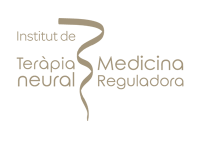How Long To Fast For Autophagy
13 Minutes
Consider your body as a kitchen. After preparing a feast, you wipe the counter, dispose of the leftovers, and reuse some food. The following day, your kitchen is clean. This is autophagy operating effectively throughout your body.
This is because autophagy is an evolved self-preservation process that allows the body to eliminate defective cells and recycle their components for cellular repair and cleansing. Autophagy serves to eliminate waste and restore optimal smooth performance. It’s like pressing the reset button on your body; it recycles and cleanses simultaneously. In addition, it promotes survivability and adaptation in response to the accumulation of stressors and poisons in our cells.
Is autophagy real? In this article, we explain the core principles of autophagy and what autophagy feels like. You will know how autophagy works when we observe fasting, its benefits, and much more. Keep reading to know more.
Autophagy is the process through which the body eliminates damaged cells to make new, healthier ones. “Auto” means “self” and “phagy” means “eating.” Hence, autophagy translates as “self-eating.” Self-devouring is another term for it. Even though this may seem like something you would prefer not to happen to your body, it is really helpful for your general health.
Autophagy is a highly conserved cellular reduction process in which cytosol and organelles are collected in a double-membrane vesicle, an autophagosome, and transferred to a degradative organelle, the vacuole, for destruction and eventual recycling of the resultant macromolecules.
This mechanism alleviates numerous cellular stress conditions. Autophagy is essential for cellular growth and differentiation suppresses tumors, and may be associated with lifespan extension. Autophagy has numerous roles in adaptive and innate immunity, including pathogen invasion resistance. Five phases define the autophagy process:
- Initiation
- Elongation
- Maturation
- Fusion
- Degradation
The carriers, which consist primarily of macromolecules and organelles, are contained in a double-membrane vesicle that expands and eventually forms an autophagosome. The autophagosome then unites with the lysosome to form the autolysosome, where cargos are destroyed by lysosomal hydrolase and products are recycled back to the cytoplasm by lysosomal permease.
Autophagy happens when cells are deprived of nutrients or oxygen, or when they have been damaged. Autophagy is a regenerating procedure that maximizes a cell’s current energy resources. The process accelerates when the body must maximize these resources since the cells are not receiving them from an external source. Through autophagy, a cell consumes itself to survive. This survival strategy has the added benefit of resulting in more efficient cells.
Autophagy happens naturally throughout the body, however many individuals question if autophagy could be triggered by a certain stimulus. Autophagy is possibly triggered by fasting. When someone fasts, they willingly abstain from food for long durations, hours, or even a full day.
Fasting is not the same as conventional calorie restriction. When a person lowers their intake of calories, they consume less food regularly. Depending on the amount of food consumed during feeding times, fasting might or might not lead to calorie restriction.
Researchers strongly suggest that both caloric restriction and fasting can trigger autophagy. There is little evidence that this procedure occurs in humans, but the majority of these examinations were conducted on animals.
Calorie restriction and fasting stress the cells of the body. When a person restricts their caloric intake, their cells receive lesser calories than they require to function properly. When this occurs, the cells must function more effectively. In reaction to the stress caused by fasting or calorie restriction, autophagy prompts the body’s cells to eliminate and recycle any damaged or unwanted elements.
However, scientists are uncertain as to which cells respond in this manner to fasting and calorie restriction. People attempting to induce autophagy through fasting should be mindful that, this may not affect fat cells. Although it may seem obvious which foods are and are not permitted during intermittent fasting, the following foods are permitted on an intermittent fasting autophagy diet plan:
- Water
- Coffee
- Tea
- Calorie-free beverages
- Some intermittent diets permit limited quantities of low-calorie items
- Dietary supplements without Calories
During mealtimes, you should prioritize consuming nutritious plant-based foods that are rich in nutrients. By consuming these meals, the benefits of fasting can be maximized.
At one point in time, scientists considered autophagy to be our cells’ way of cleaning to survive and function effectively. In the past two decades, scientists have learned that autophagy may play an essential role in disease prevention and response. Studies have revealed, for example, that issues with autophagy may be connected with:
- Crohn’s illness
- Diabetes
- Cardiac disease
- Huntington’s disease
- Kidney disease
- Liver illness
- Parkinson’s disease
Does autophagy tighten loose skin? The answer is certainly yes. There are various anti-aging benefits of autophagy. The skin texture and tone improve and it appears more soft, hydrated, and wrinkleless.
Autophagy issues are also related to cancer. The accumulation of waste in a cell may increase the chances of genetic material or DNA mistakes. DNA mutations or alterations can result in the formation of cancer cells.
Nevertheless, autophagy is neither an unambiguously damaging nor beneficial mechanism in terms of illness prevention or treatment. Several studies have found, for instance, that autophagy may inhibit the formation of tumors in the initial stages of cancer. Other research has demonstrated that autophagy may promote tumor growth by improving cancer cell activity.
Furthermore, most findings about the relationship between autophagy and disease haven’t been conducted on humans. The majority of research has been conducted on animals, such as mice or rats, who, like all mammals, experience autophagy.
As scientists collect additional evidence regarding the connection between autophagy and disease, we will have a deeper understanding of the function this process may play in particular disorders and long-term health.
Recent discussions of autophagy frequently position it as a health trend, a method for obtaining younger, healthier cells. Autophagy is not so straightforward. Indeed, autophagy is crucial for healthy cells. It is also true that some diseases are related to autophagy issues.
However, there is little evidence to recommend promoting autophagy as a health strategy. Based on your health, fasting, lowering your caloric intake, making dramatic dietary changes, and engaging in strenuous activity may be harmful. Consult a medical expert before making any changes to your lifestyle that may interfere with your body’s natural processes.
Stressing your cells to drive them into survival mode can activate autophagy. These methods and dietary alterations can be used to induce autophagy:
Fasting
Fasting is abstaining from food for a period of time. Fasting deprives the body of essential nutrients, compelling it to reuse cell components to function.
Calorie restriction
Reducing your caloric intake involves consuming fewer energy units, or calories. Instead of depriving the body of all calories as in fasting, you restrict them. This compels your cells to undergo autophagy to make up for the missing nutrients.
Adopting a high-fat, low-carbohydrate diet
This sort of diet, generally referred to as a ketogenic diet, alters the way your body uses energy so that it burns fat rather than carbohydrates or sugar. This switch in diet can initiate autophagy.
Exercise
Stressing your skeletal muscles increases activities that boost ATG activity, such as exercise. Autophagy can be induced by exercise, based on the type and intensity of the exercise.
Several organs involved in metabolic regulation, including muscle, the brain, the liver, the pancreas, and adipose tissue, undergo autophagy induction as a result of exercise, according to research. And moderate activity, consisting of a combination of cardio, resistance training, and high-intensity interval training for approximately 30 minutes per day, appears to be optimal for autophagy activation, but excessive or prolonged exercise may nullify some of its effects.
Curcumin
In animal experiments, scientists have also claimed that curcumin consumption induces autophagy. Curcumin is a naturally occurring substance found in the root of turmeric, a globally popular spice.
One animal study found that curcumin-induced regeneration of autophagy could protect against diabetic cardiomyopathy, a disorder that affects the heart muscles of diabetics.
Inducing autophagy in specific regions of the brain, according to a second study on mice, with supplemental curcumin aided in the fight against chemotherapy-induced cognitive decline.
Although these early findings are encouraging, it is essential to stress that additional research is required before scientists can make conclusions. Particularly, scientists are unsure if increasing curcumin use can promote autophagy in people.
There are three primary dietary methods for inducing autophagy. Lack of eating time, lack of calories, and lack of nutrients can all contribute to the onset of this condition. The following nutrients increase autophagy:
- Coffee
- Green tea
- Turmeric
- Ginger
- Ginseng
- Cinnamon
- Certain mushrooms
- High spermidine foods
Spermidine can promote autophagy by inhibiting many acetyltransferases, including EP300, one of the primary autophagy regulators. It is also hypothesized that spermidine treatment can restore normal autophagy production in individuals with reduced levels.
If you wish to gain the advantages of autophagy, amino acids are the most strong inhibitors (protein).
Once per week, consume no more than 15 g of protein per day. This provides your body with a full day to reuse proteins, which will minimize inflammation, purify your cells, and prevent muscle loss. During this period, when autophagy is activated, your body must digest its very own proteins and toxins.
Sugary and starchy foods, wheat-based items, the majority of fruits excluding berries, legumes, poorly processed vegetable oils, sweetened beverages, and alcohol should be avoided.
The key benefits of autophagy appear to be anti-aging concepts. In truth, it is the body’s way of producing younger cells and turning back the clock. Whenever our cells are under stress, autophagy increases to protect us, thereby extending our longevity.
Additionally, autophagy keeps the organism alive under famine by degrading cellular material and reusing it for essential tasks. This requires energy and cannot last forever, but it buys us more time to acquire food. Included among the cellular benefits of autophagy are:
- Eliminating neurodegenerative disorders such as Parkinson’s and Alzheimer’s disease-associated harmful proteins from the cells
- Recycling protein residues
- Supplying fuel and building blocks to cells that still require repair.
- It promotes healthy cell regeneration on a greater scale.
- Autophagy is also getting significant interest for its potential involvement in treating or preventing cancer.
As humans age, autophagy diminishes, allowing nonfunctional or potentially harmful cells to grow, which is the strategy of cancer cells.
While all diseases begin with damaged cells, the body should recognize and eliminate them, typically through autophagic processes. Some researchers are investigating the idea that autophagy could reduce the risk of cancer. Although there is no evidence to support this claim, certain research indicates that autophagy can eliminate many cancerous cells.
This is the way the body combats cancerous agents. Recognizing and eliminating what went wrong and activating the healing mechanism to reduce the risk of developing cancer. Researchers anticipate that subsequent investigations will yield insights that will enable them to approach autophagy as a cancer therapy.
Reduced risk of cardiovascular disease
Heart disease, heart attacks, and atherosclerosis have all been linked to autophagy defects. Stimulating autophagy may aid in the removal of damaged cardiac cells, preserving heart health and preventing atherosclerosis.
Improved brain health
Notably, the majority of neurodegenerative disorders, such as Parkinson’s disease and Alzheimer’s disease, are connected with the accumulation of unfolded proteins or pathologic proteins, therefore, impaired autophagy may add value to these diseases, although the precise mechanism by which it does so is not fully understood.
In addition to protecting against Huntington’s disease and amyotrophic lateral sclerosis, the procedure may also protect against other neurodegenerative disorders such as amyotrophic lateral sclerosis and Huntington’s disease. This is because autophagy aids in the removal of damaged proteins that can build up in the brain and contribute to aging and brain-related disorders.
Reduced inflammation
Several types of inflammatory cells, including macrophages, neutrophils, lymphocytes, and cytokines, are regulated by autophagy, thereby assisting in the termination of inflammation. As autophagy is an effective anti-inflammatory, activating autophagy may lower the severity of inflammation-related diseases such as Crohn’s disease, cystic fibrosis, and chronic obstructive pulmonary disease.
Autophagy also balances insulin levels, which reduces inflammation and has favorable impacts on digestive health, an often overlooked but essential part of weight loss and the cultivation of overall health.
Healthy Aging
Everyone ages, but have you observed that some people appear to age more quickly than others in terms of appearance and health? Because cellular aging is caused by the build-up of damaged proteins and organelles that block normal bodily function and repair, and because some individuals have more of these damaged proteins and do less to clear them than others. Regularly triggering autophagy can help maintain healthy cells and repair damaged pathways, allowing the body to age in a healthy manner.
Increase the heat
Some health advantages of sauna use are related to autophagy. We know that exposing the body to high temperatures, typically between 120° and 180° F, generates heat-shock proteins and activates the lymphatic system, which has a carryover effect on autophagy by increasing microcirculation. Using an infrared sauna can assist in maintaining detox pathways open and engaged, allowing you to access autophagy more quickly.
FAQs
What Does Autophagy Feel Like?
Autophagy feels like you are being treated for an intrinsic disorder. There are various physical and biochemical signs that you will observe once you are in the phase of autophagy. These include but are not limited to:
Fatigue
Low appetite
Reduction in body weight
Raised ketone levels
Bad Breath
Improved concentration and brain function
How Long To Fast For Autophagy?
One of the most common questions asked on the internet is when does autophagy start when fasting?
It is extremely difficult to evaluate autophagy outside of a laboratory setting. Therefore, it is difficult to identify the autophagy fasting timeline and the exact duration of fasting required to activate autophagy. However, many specialists claim that the process begins after eighteen to twenty hours of fasting, with the greatest advantages coming between 48 and 72 hours.
Two or three days without food may appear harsh. Experts advise against a regular fast of this duration. Instead, it is suggested that you practice intermittent fasting consistently while fasting for 48 to 72 hours once or twice annually. As with most other diets, consult your doctor to check that fasting is safe.
Does Autophagy Tighten Loose Skin?
Wrinkles and sagging skin are among the most feared side effects of aging. Autophagy has a direct effect on skin aging, and activating the procedure can help tighten your skin and decrease the amount of sagging skin on your body. It helps the systems that maintain your skin supple and capable of tightening more quickly.
In addition, with autophagy weight loss, it is practically definite that they will get saggy skin. Autophagy can assist your skin in adjusting to your new weight more quickly. This indicates that your skin will swiftly tighten, lowering the quantity of sagging skin on your body.
HOW SENSES CAN HELP WITH Wellness
Senses is a leading provider of luxury addiction and mental health treatment for affluent individuals and their families, offering a blend of innovative science and holistic methods with unparalleled individualised care.
A UNIQUE METHOD
successful and proven integrative holistic conceptOur program consists of treating only one client at a time individually designed to help you with all the problematic aspects of your life. All individual treatment sessions will be held at your private residence.
more infoYour program is designed based on your personal needs. The team will exchange daily information and adjust the schedule as we go. Our therapists will work with you treating integrative not just the symptoms and goes beyong your stay to ensure lasting success.
more infoOur biochemical imbalance can be affected by diet and stressful life events, but it often goes back to genetics and epigenetics. We do specific biochemical laboratory testing to determine an individual’s biochemical imbalance. Combining the results of the lab tests with anamnestic information and clinical tests, we prescribe an individualized and compounded vitamin, mineral, nutrient protocol to help recover from various disease states.
more infoOur experts combine the best from psychological treatment, holistic medicine to support you individually and providing complementary therapies all coordinated from one source working complementing each other integrative.
more infoUsing latest cutting-edge technology-based therapies such as Neurofeedback, tDCS, and SSP, we can track the biological patterns of your body, giving us valuable insight into your health and well-being as well support your brain and body performance and recovery with neuromodulation.
more infoOur chef and nutrition specialist will design your personalized diet plan supporting your body & mind recovery as well as helping with weight management. Nutrition workshops and mindful eating sessions will help you to maintain a healthy lifestyle.
more infoWellness TREATMENT LASTING APPROACH
0 Before
Send Request
0 Before
Define Treatment Goals
1 week
Assessments
1-4 week
Integrative Holistic Therapies
5-12 week
Aftercare
12+ week
Refresher Visit
Wellness Insights
latest news & research on Wellness
Stress Management
Stress management isn't a magic wand that makes stress vanish. Instead, it's a toolkit full of strategies and techniques that help you handle stress better
read more
Leadership Burnout
Leadership burnout, often termed executive burnout or executive stress syndrome, encapsulates the exhaustive toll that high-stakes leadership roles take on individuals
read moreAccreditations





























































